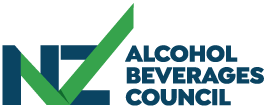Today Parliament has passed the Sale & Supply of Alcohol Act (Community Participation) Bill, making getting and renewing a liquor licence harder than it already was and threatening the commercial future of responsible hospitality and alcohol retail operators.
“Parliament has today effectively determined that owning and operating a bar, pub, restaurant, cellar door, bottle store or any other business that sells alcohol should hinge on a set of rules that can change at any time, with no right of appeal”.
“For a sector so critical to the very fabric of New Zealand’s hospitality, retail and tourism industries, this is a massive blow, especially on the heels of a tough few years, thanks to Covid-19 restrictions.” says NZABC executive director Virginia Nicholls.
“These law changes were meant to give communities greater say over who gets a liquor license in their area. Except the legislation will not do this. In fact, it will probably make it harder for communities to have a say and in the process, make retailing alcohol, whether in a hospitality venue or a retail store, unsustainable.”
Throughout the country liquor licensing decisions are determined by District Licensing Committees (DLCs) in keeping with the relevant Local Alcohol Policy (LAP).
“Instead of addressing alcohol-related harm, Parliament’s decision today will significantly impact responsible business owners and exaggerate existing problems with the current licensing process”.
“For license-holders, today’s changes make the process of getting or renewing a liquor licence dependent on jumping through even more hoops than existed already, and potentially facing different hoops next time they have to renew their licence”.
“For example, individuals or groups from anywhere in New Zealand will now be able to object to a licence or a licence renewal in any part of the country. This means someone in Auckland can have a say in whether a cellar door in Marlborough or a bar in Wellington should have their licence renewed.”
“This is manifestly unfair and goes against the intent of the amendments to the Act, which was to strengthen the ability for communities to decide how alcohol should be sold and supplied in their neighbourhood.”
“Under the legislation and an LAP allows proximity provisions to sites such as schools or a church, this could force the closure of a pre-existing on or off-licence irrespective of whether it was well run or valued by the community.”
“The law changes mean any hospitality venue or alcohol retail store that has been operating responsibly in a particular location for decades could be forced to close because a ‘sensitive site’ decides to locate close by”.
“A neighbourhood restaurant or bottle store which has operated responsibly for years, may find themselves having their re-license refused because a new medical centre has opened along the road.”
“We also expect the changes will mean an increased number of licensing hearings which will be longer and more involved, with higher costs for everyone involved – from the community to the licence applicant.”
“The legislation removes the parties ability to appeal Local Alcohol Policies (LAPs) to the Alcohol Regulatory Licensing Authority (ARLA) which will restrict the appeal rights in the community. This ignores the ability to challenge decisions that unduly impact trading rights or may not be based on evidence.”
“Removing the appeal provisions will not necessarily speed up the LAP process since most delays are caused by the use of legitimate judicial reviews which have nothing to do with the current Act”.
“Since 2010 the number of licences nationwide has declined by more than 23%.[1]” We expect these law changes to see that decline continue, which will mean responsible operators shutting up shop, communities and visitors to New Zealand having less choice about where and how they socialise or buy alcohol and, critically, no reduction in alcohol harm”.
“Research tells us that the vast majority of New Zealanders drink responsibly. New Zealanders are drinking 25% less now than they did in the late 1970s [2]. Further, harmful drinking – particularly among younger drinkers – has also fallen.”
“Making it harder for responsible licence-holders to stay in business, and further challenging responsible hospitality and retail operators is not a sound strategy for reducing alcohol harm”.
Virginia Nicholls is the executive director of the NZ Alcohol Beverages Council
[1] Over the past 12 years (from 2010 until 2022), our licences have decreased from 14,424 (Law Commission Report February 2010) to 11,078 (ARLA December 2022).
[2] Total NZ population 15 years and over total alcohol, 12 litres per person in 1978 – 8.6 litres per person in March 2023. StatsNZ Infoshare.
